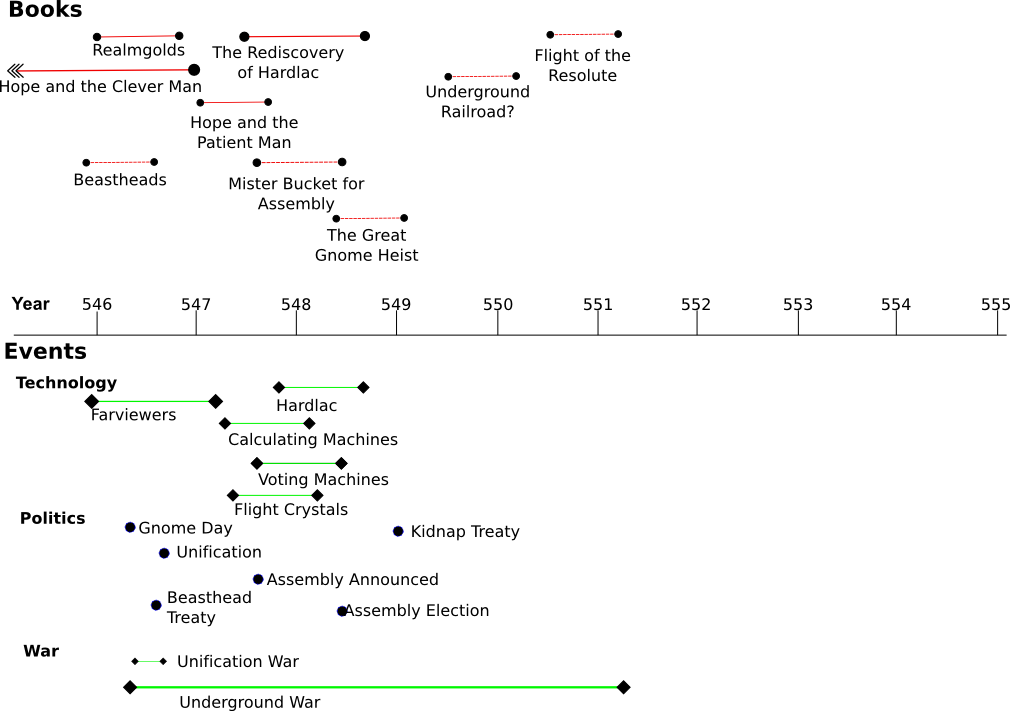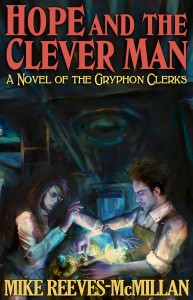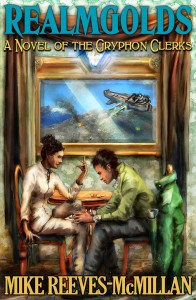Something new today. I’ve decided to do a Short Story Challenge this year, which works as follows:
- I read and analyse a classic short story each month.
- I take what I learned and write a short story of my own.
- I submit it to magazines and anthologies until it sells, or until I run out of markets.
- Once the rights revert, I publish it on Amazon, either alone or as part of a collection, and/or make it one of the membership bonuses for my mailing list.
Several people I know on Google+ are joining me (some of them are doing slightly different versions), and you can follow along with the hashtag #shortstorychallenge.
I’m working, at least initially, from the Oxford Book of Fantasy Stories, selected by Tom Shippey. It’s a collection I own, I’ve read it before, and I know it has a lot of good stories in it, drawn from just over a century of fantasy literature (1888-1992).
I’m not planning to analyse every story in it, because I know I wouldn’t follow through on that. Besides, I only need a dozen, and I want to throw some SF stories in later on as well (probably from the companion Oxford Book of Science Fiction Stories, also selected by Shippey, and which I also own). I may look at a detective story or two – my wife has about 30 mystery anthologies, including a couple of Oxford ones that she says are good – and possibly some mainstream short fiction, of which I also have a couple of collections. It’s generally good to read outside your genre. It can freshen things up.
Here’s my first analysis, then. It happens to be of a story that’s freely available on the web: Lord Dunsany’s “The Fortress Unvanquishable, Save for Sacnoth“. I’ll analyse it under a number of headings, which I’m making up as I go along, and italicise the things I take as lessons. Future analyses may differ in approach. In fact, that’s highly likely.
Subgenre: Somewhere between Sword and Sorcery and Weird Tales. The events are S&S, the tone is Weird, and the combination works well. Crossing a couple of subgenres can have the effect of adding their strengths together.
Type of story: The plot has a strong Adventure core, but it’s not just an adventure. It’s also a Creepy Mood/Bizarre Experience story, like the ones that Lovecraft and co. wrote (going back at least to Poe). It has a Switch-up at the end, when the narrator questions whether it’s an Hallucination or even a complete False Legend. This kind of category questioning is part of the Weird Tales genre, I think, and contributes to the genre’s sense of confusion and fear.
Why the story works: It works more because of the atmosphere, the language and the tone than because of the plot, which is straightforward, with a minimal amount of tension in it (see analysis below). The adventure part would have made a decent story, perhaps a bit disappointing because the protagonist wins too easily. Those additional aspects make a great one. If you sizzle loud enough, you may not need as much sausage.
Language Elements: The names are the first thing to notice. The story itself is named after the fortress in it: The Fortress Unvanquishable, Save for Sacnoth. Even its door has a wonderful name: The Porte Resonant, the Way of Egress for War. Then there are the names of the other places, people, and enemies: the town of Allathurion, its lord Lorendiac, and his son Leothric (the first two sound more-or-less Norman French, the third Saxon, and all of them Arthurian); the dragons Tharagavverug, Thok, Lunk, and Wong Bongerok, whose resonant, clanking names reflect their metallic nature; the evil magician Gaznak, who sounds like a Tolkien orc; The Land Where No Man Goeth. Take the opportunity that names provide to evoke atmosphere.
Then there are the descriptions. “Then Leothric advanced towards a door, and it was mightier than the marble quarry, Sacremona, from which of old men cut enormous slabs to build the Abbey of the Holy Tears. Day after day they wrenched out the very ribs of the hill until the Abbey was builded, and it was more beautiful than anything in stone. Then the priests blessed Sacremona, and it had rest, and no more stone was ever taken from it to build the houses of men. And the hill stood looking southwards lonely in the sunlight, defaced by that mighty scar. So vast was the door of steel.” That kind of description is hard to pull off, comparing something mythical to something else mythical that you have to explain, but if you can do it, you can convey a sense of a world that extends beyond the edge of this story; that’s being shot on location, not in a sound stage. Give the audience something that only appears in the corner of their eye to make the world more real.
A number of the descriptions of the evil things mention Satan. This not only gives a context (Christianity) but also ties them together through the repetition.
The whole story uses an “elevated” and pseudo-antique style, the kind of style William Morris pioneered (following Spenser’s Faerie Queene): “unvanquishable” rather than “unconquerable” or even “impregnable”; “save for” rather than “except for”. This is incredibly hard to pull off (judging from the number of people who fail at it). You need a very large vocabulary and a good ear. All too many writers who attempt it have a much smaller vocabulary than they think they do, so they use the wrong word and make themselves look like idiots, and are prone to dropping modern colloquialisms into the middle of the high-flown prose at intervals and completely spoiling the effect. Dunsany has the linguistic chops to make it work. He knew what he was doing, and he could probably have explained it if he had to. Unless you can explain how and why this works, don’t try it.
Plot: Let’s attempt to apply the Seven-Point Story Structure and see where we get to.
Hook: The village by the dark forest full of fae is peaceful (paragraph 1). A little… too peaceful, if you know what I mean. Already, we’re waiting for the other shoe to drop. Hint at trouble as early as you can.
Plot Turn 1: The village becomes troubled by evil dreams (paragraph 2). There we go. Don’t hold off too long on the plot turn.
Pinch 1: The magician can’t defeat them with his best spell. (There’s actually a brief try-fail cycle here, by a minor character, the magician, who doesn’t reappear later, and the protagonist isn’t even introduced until it’s over.) The protagonist doesn’t have to do everything.
This sequence also does a lot to establish both the tone and the world: there is magic, there’s a culture that crosses various kinds of landscape containing camels, elephants and whales, even a village magician commands great power. Make the minor details work to establish world and tone.
Midpoint: Leothric steps up and volunteers to go and defeat the dragon-crocodile Tharagavverug in order to get the sword Sacnoth, so that he can defeat the sender of evil dreams. We have a sub-quest. Arguably, the whole sub-quest, in which he must demonstrate tenacity and courage and therefore his worthiness for the main quest, is part of the midpoint. The points can be extended sequences, not just moments; the midpoint is a demonstration of fitness to be the hero, not just a decision.
Pinch 2: Leothric fights his way into the Fortress Unvanquishable, Save for Sacnoth. This is a kind of try-fail cycle, the kind that looks like success. He keeps achieving tasks (break down the door; scare off the camel-riders; get past the spider; pass through the hall of princes and queens; resist the temptation of the dream-women; cross the abyss; fight the dragon; fight the other, more dangerous dragon), but none of them are the task he wants to achieve: fighting and defeating Gaznak. In his talks on the Seven Points, Dan Wells alludes to the example of The Princess Bride, where the Man in Black’s contests with Inigo, Fezzik and the Sicilian, and the encounters in the Fire Swamp, are “try-fail” cycles. He wins, he progresses, but he doesn’t yet achieve his ultimate objective: to escape to his ship with Buttercup. Try-fail cycles can involve the protagonist winning.
Leothric doesn’t have any serious trouble with any of these obstacles, yet the story remains interesting, because they’re so beautifully described and everything is so evocative. This is similar to Dunsany’s models, the Arthurian quests (Gawain and the Green Knight, for example, which also gets echoed later with the detachable head). Success against opposition, even easy success, doesn’t have to be boring, as long as the opposition is interesting and the success isn’t instantaneous.
Plot turn 2: Leothric finally confronts Gaznak, and just when it looks like he will lose (because Gaznak’s sword can destroy Leothric’s armour, but not vice versa, and Gaznak’s detachable head trick prevents Leothric from beheading him), he figures out that Gaznak has another point of vulnerability: his wrist. This has been set up in advance, so it doesn’t feel like it comes out of nowhere, and in exploiting it he adds intelligence to his already-demonstrated virtues of courage and tenacity. Set up the solution, even if only half a dozen paragraphs before. Have the hero snatch victory from the jaws of defeat. It’s never too late to have the hero show another quality that’s consistent with his character.
Resolution: The evil dissipates, Leothric returns home and the village is again at peace. Return to status quo ante is an acceptable resolution; the hero has changed, but the world may be back to how it was.
After the resolution comes the little twisty doubty thing in the last four paragraphs. If anything, this makes the story more of a legend, claims for it the status of a traditional tale rather than a newly-made-up story, as well as raising the epistemological question of what is true, what is real, and how we know. Those are questions academics ask more often than ordinary people, and perhaps they were preoccupations of earlier generations more than our own. It’s not necessarily something to imitate, but I think it works for this story.
So there’s my analysis. Now I need to write my story. I have a story in progress, but I’m not sure that the lessons I’ve learned here are directly applicable to it, so I may need to start another.






